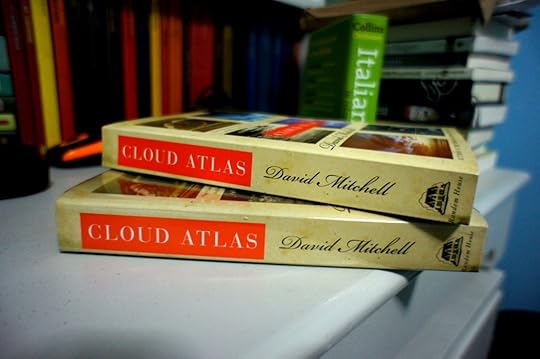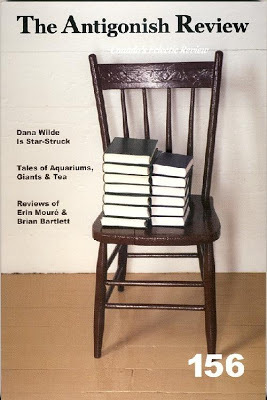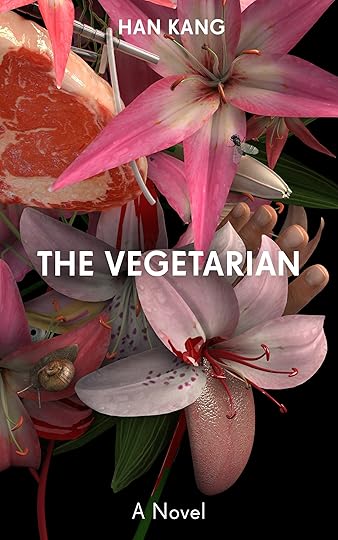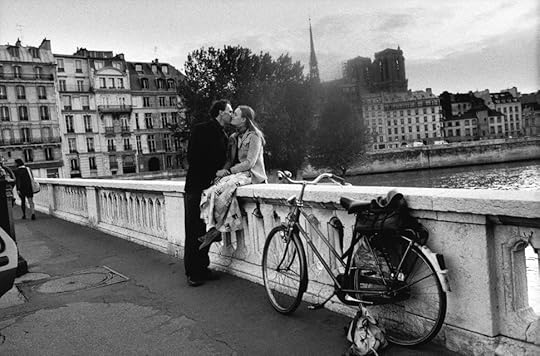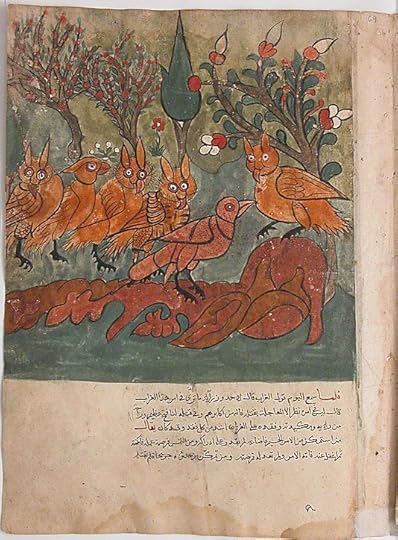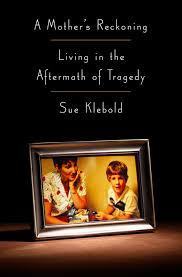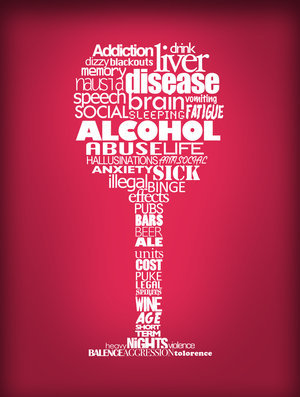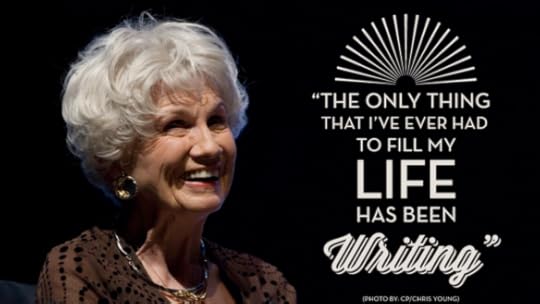Richard Harris's Blog, page 50
April 18, 2016
Why Read the Same Book Twice?
Is reading a book for a second time akin to dating an ex- again? Like, what’s the point? You’ve been down that path, you know the score, it ain’t your first rodeo with it/him/her, so why bother?
As per the first question, no, it’s not like dating an ex- for the second time. To begin, a second run through a book lacks the drama of the latter (and the petty, petty fights). With respect to the other self-directed question, the point is in the details; reading a book for a second time is the difference between gazing at the stars with the naked eye and with a telescope. With an awesome piece of Galilean machinery, the stars really start to glitter.
My book club is nearing its 7th anniversary and over that time we’ve been fortunate to read some very good literature, both fiction and non-fiction alike. This month, however, one member decided to shake things up a bit (variety is the literary spice of life?). Instead of choosing a new title as we usually do, she asked everybody to pick one book we’ve already done and either go back and reread it (or read it for the first time if you happened to miss that month). Brilliant, says I.
That’s how I ended up choosing Kent Haruf’s Plainsong again this month. I purposefully chose this book because it’s not only a deeply soulful, thought-provoking read, but it’s sloooooooooooooow. My life is too hectic right now. I’m in the middle of my busy season for work and practically coming off the rails when not fighting deadlines 24/7. I started Plainsong once again yesterday and know that I have made the right decision. Haruf’s lyricism is so simple it can’t help but make you smile, especially when you consider the metaphor that I’ve cluttered and complicated my own life with all this bloody work. And wouldn’t you know it? I’m actually enjoying the book more this time through than I did the first time around.
However, I should point out that the experience is not always the same when you have a second kick at the can with books. For example, although The Wind-up Bird Chronicle is one of my favourite books and hugely impactful on my own writing, I didn’t enjoy it nearly as much the second time. Alternatively, The English Patient became more poetic the second time (and even better the third), Richler’s Barney’s Version was even more piss-your-pants funnier the second time around, and my personal bible, Gibran’s The Prophet, has only become more poignant over the years with each subsequent read (I lost count at 10).
The thing is, you’ll never know how good a book can be a second time until you’ve tried it. Unfortunately, in this day and age of bucket lists, an addiction to newness, and the pressure to stay up on what’s hip and relevant, many of us don’t take the time to go back to the proverbial well and recall fond memories of stories that helped shaped us on our life journey. You should try it. I’m pretty sure you won’t regret the trip down memory lane in this epoch of Go! Go! Go!


March 25, 2016
Fiction/Poetry Contest for Everyone
For all you aspiring/established writers of fiction and poetry, there’s a writing contest coming up at The Antigonish Review. Fiction submissions need to be postmarked by June 1, 2016 (max. 20 pages) and poetry (max. 4 pages/150 lines) needs to be in the mail by June 30, 2016. Three cash prizes and publication in The Antigonish Review. For more information, check out this link.
Note: This contest is open to residents in ALL countries and of ALL nationalities.


March 24, 2016
A Korean Man Booker Winner Waiting in the Wings?
Per an article in The Irish Times, “The Vegetarian towers over Man Booker International Prize long list.”
Who the what the…where the France?
Why is this a 핫이슈 (“hot issue”), you ask? Because the author of The Vegetarian, Han Kang, is a South Korean writer. Why, again, is this a wide-load deal? Because unlike their Japanese and Chinese counterparts, Korean writers still remain completely unknown to the outside world. Even for the most voracious bibliophile, South Korean authors might as well be North Korean. This is the unfortunate reality for three main reasons:
1) There is a dearth of Korean fiction that appeals to English readers.
2) The bar for Korean-to-English translations has been set so low that it’s usually painful (think of all four molars being yanked out of your mouth at the same time) to read the slim pickings that are already out there.
3) There is no vocal/famous writer or publisher championing the nation’s literature.
This year marks the inaugural award that will combine two gargantuan literary prizes, the Man Booker International Prize and the Independent Foreign Fiction Prize. So kudos to the Han River (Ms. Kang’s name is also the name of the body of water that bisects Seoul) for this remarkable achievement. Just making it to the long list of the International Booker will certainly have scores of readers curious enough to see what all the hype is about, me thinks.
If you’d like a sneak peek, you can read an excerpt from The Vegetarian here. Interestingly enough, this tidbit has a remarkably similar feel to it as Murakami Haruki’s The Wind-up Bird Chronicle.
However, the really, really interesting back story to this story about a story is how it got to English in the first place. A British translator by the name of Deborah Smith took it upon herself to translate the first 20 pages of The Vegetarian and submitted it to a renowned publisher in the U.K., Portobello Books. Editors there were so impressed by the sample that they inked a contract before the translation was even completed!
Good luck to Ms. Kang. I know that I, for one, will be waiting with bated breath for the decision from the jury this coming May.


March 16, 2016
On Love & Quotes
I like quotes. I mean, really, who doesn’t ? Bound by a cute pair of rabbit ears, a great quote can serve as a life mantra, a conversation starter, an impetus to change your life, a reason to learn more about a subject…the list is endless!
My friend and old ex-curler buddy, Stephen B., just tagged me in a Facebook Memory (didn’t even know they existed before this) and reminded me of a quote from Thornton Wilder’s The Bridge of San Luis Rey, a novel we read in our book club aeons ago. Wilder was in his own league when it came to his prose. I mean, here was a guy who really knew how to string together words in a way that hits you hard, not like a nudge on the shoulder, but more a hammer to the cerebral cortex that induces a shot of heaven-borne adrenalin to your organ of fire.
Check out this doozy from The Bridge of San Luis Rey:
Soon we shall die and all memory of those five will have left earth, and we ourselves shall be loved for a while and forgotten. But the love will have been enough; all those impulses of love return to the love that made them. Even memory is not necessary for love. There is a land of the living and a land of the dead and the bridge is love, the only survival, the only meaning.
(ed. note: If you like Wilder, especially The Bridge of San Luis Rey, I strongly encourage you to read David Mitchell’s Cloud Atlas. Aside from The Bridge of San Luis Rey being one of Mitchell’s favourite books, he infused a lot from Wilder’s novel in his own epic, ranging from the character of Luisa Rey to the almost frequent mention of bridges at key moments in the story. )
While reading that Wilder quote again, I find it hauntingly similar to a passage I read years ago that was written by yet another literary giant more than 60 years before Wilder penned his ethereal prose on love. To quote Prince Andrei from War and Peace:
Love hinders death. Love is life. All, everything that I understand, I understand only because I love. Everything is, everything exists, only because I love. Everything is united by it alone. Love is God, and to die means that I, a particle of love, shall return to the general and eternal source.
Now that I’m on the subject, though, I can’t but recall two of my all-time-forever-like-totally-can’t-forget-about-them quotes on this subject.
First, I present Lawrence Durrell from the first book in the Alexandria Quartet novels, Justine:
The loved object is simply one that has shared an experience at the same moment of time, narcissistically; and the desire to be near the beloved object is at first not due to the idea of possessing it, but simply to let the two experiences compare themselves, like reflections in different mirrors. All this may precede the first look, kiss, or touch; precede ambition, pride, or envy; precede the first declarations which mark the turning point—for from here love degenerates into habit, possession, and back to loneliness.
And I end with the man himself, Michael Ondaatje, and his swan song from The English Patient:
We die containing a richness of lovers and tribes, tastes we have swallowed, bodies we have plunged into and swum up as if rivers of wisdom, characters we have climbed into as if trees, fears we have hidden in as if caves. I wish for all this to be marked on by body when I am dead. I believe in such cartography – to be marked by nature, not just to label ourselves on a map like the names of rich men and women on buildings. We are communal histories, communal books. We are not owned or monogamous in our taste or experience.


March 13, 2016
ScreenCraft Comedy Screenplay Contest
“Whether you have a romantic comedy or an action-comedy blockbuster, we want to read your script. Big or small, our jury is looking for smart feature film screenplays with strong command of the craft, lots of heart and unique comedic voices. All entries are eligible for optional feedback from a studio-trained professional reader.”
Deadline is April 11 and the winner takes home $1,500 plus some invaluable contacts. Click here for more details.


A Writer Considers an Alternate Life as an Undercover Agent
An interesting essay on the Lapham’s Quarterly website by Jennifer duBois entitled “MFA vs. CIA.” Ms. duBois is the author of two novels, one of which, A Partial History of Lost Causes, I read with my fellow curlers as a book club selection of the month. Although Curling Was Full did not go coo-coo-for-cocoa-puffs ecstatic over the book, Ms. duBois certainly shows great promise as a young writer.
If you don’t have the time/desire to read the entire essay, here are some of the more golden-like golden nuggets:
“Intelligence failures, like literary ones, tend to stem from failures of empathetic imagination.”
“Writers and spies share an ability—and a willingness—to hide in plain sight, to deflect attention not only from the nature of their role but from the fact that they have any role at all. A spy obscures his relationship to events in order to affect them, just as a writer hovers anonymously beyond the page in order to exert her tyrannical, obsessive control.”
“[A] condition of knowing the truth is to never, never tell it.”
“Writers and spies also tend to inspire related suspicions, though they differ (as ever, and by an order of magnitude) in degree. Both are thought to exist on some level apart from normal people, even while living in their midst. Both are known to have skewed relationships to consensus reality and predatory attitudes toward other people’s information.”
“[S]uspense comes from the feeling that things might have gone differently. In real life, we call this free will—and just as in fiction, it may be an illusion.”


March 9, 2016
A Mother’s Reckoning: Living in the Aftermath of Tragedy
Sometimes a title says it all. Remember Columbine? The precursor to names like Virginia Tech and Sandy Hook, Columbine still remains the deadliest high school shooting in U.S. history. Although nearly 17 years have passed since that awful day when Eric Harris and Dylan Klebold walked into their school and killed 12 fellow students and one teacher, injuring 21 others along the way, April 20, 1999 is “a date which will live in infamy” (to quote FDR). For it was on that morning that far too many people had their lives irrevocably changed and the world watched in horror as the unthinkable happened: kids killing kids en masse.
Sue Klebold, the mother of 17-year-old Dylan Klebold, recently published a memoir called A Mother’s Reckoning: Living in the Aftermath of Tragedy. Its focus is not so much about the carnage itself, but about teenage angst, depression, and suicide. Carlos Lozada at The Washington Post summed up the book well when he wrote:
Reading this book as a critic is hard; reading it as a parent is devastating….I imagine snippets of my own young children in Dylan Klebold, shades of my parenting in Sue and Tom. I suspect that many families will find their own parallels….This book’s insights are painful and necessary and its contradictions inevitable.
While many, including Michael Moore through his documentary Bowling for Columbine, tend to focus on the gruesome nature of the attack itself, the proliferation of guns, and the high homicide rate in the U.S., Sue Klebold addresses what is arguably a more immediate question for societies everywhere: How do we deal with the psychological turmoil teens experience around the world and what can be done to address this vital social issue which touches us all, almost like cancer does, either directly or indirectly through family members and loved ones?
Unbeknownst to a lot of us, there are more than 38,000 suicides in America every year, making it the second leading cause of death for those 15-34 years of age. Compare that to the roughly 12,000 homicides that take place in the U.S. annually and you get an idea why someone like Sue Klebold, whose son killed himself at the end of the rampage, sees more than just gun control law problems when she looks back on Columbine.
While firearms account for the lion’s share of suicides in the United States, the fact that Korea has the highest suicide rate in the developed world (and No. 2 overall) and Japan has the third highest rate among OECD countries (and No. 17 overall) is further proof that guns are not the source of the problem when it comes to mental illness, by far and away the leading cause of suicides in the U.S.; they’re simply a quick means to an end.
Sadly – and I say this purely from an empathetic point of view because it’s abundantly clear that she is forever damaged emotionally and psychologically – there are still those who blame and hate the parents of Dylan Klebold and Eric Harris. However, Sue Klebold didn’t let that stop her from describing her own living hell and what she hopes to do about it in a positive, beneficial way. Rather than personally benefit financially from the sale of her story, she is donating all profits from the book to research and charitable organizations focusing on mental health issues.
Let’s all pray that initiatives such as this can in some small measure help us as one global society come face to face with something that has been stigmatized and brushed under the carpet for far too long. Mental illness, depression, and suicide are very real and will not get any better until we find a way to help those in need with a more caring and constructive approach.


March 6, 2016
Does Alcohol + Writing = Genius x Calamity ÷ The X Factor?
What do Ernest Hemingway, James Joyce, Hunter S. Thompson, Edgar Allan Poe, F. Scott Fitzgerald, William Faulkner, Jack Kerouac, Tennessee Williams, Raymond Chandler, and O. Henry all share in common?
They were all alcoholics at one time, many of them for life, some of whom actually died as a direct result of their affliction.
Frighteningly enough, the above list only represents some of the greatest names in English literature over the past 150 years. This raises another alarming question: Is a grossly unhealthy dependence on alcohol necessary to become a great and prolific writer? Should writers follow Hemingway’s advice when he once mused, “Write drunk; edit sober”? While a humorous, pithy, and catchy suggestion, was Papa onto something?
Fortunately, the answer is a resounding NO!
Just ask Stephen King, who since quitting drugs and drinking has produced arguably his best work; David Mitchell, who’s an insanely responsible person and health nut; Murakami Haruki, who quit smoking and left his heavy whiskey-drinking days behind long ago at his former Tokyo bar and now takes solace in jogging, not the bottle. I’m pretty sure Margaret Atwood and Michael Ondaatje are on the straight and narrow, too. Then there’s Isaac Asimov, Anne Rice, and Stephenie Meyer, each famous as a writer for different reasons, but all of whom are teetotalers (abstinent from alcohol).
Over the past few weeks, I’ve been binge-watching Intervention Canada, an intense documentary that spends a few days following drug and/or alcohol addicts (and by “addict” I mean so far gone in most cases that it’s actually difficult to watch sometimes) before facilitating an intervention and offering treatment at many of Canada’s top treatment facilities. (Sidebar here: is it just me or are all the best rehab centres in Canada located in British Columbia?)
While watching an episode of IC a few days ago, I was struck by the courage one young woman summoned up when coming to grips with her demons, so I decided to write it down:
“I do not know what it is to be brave. And I do not know what the word bravery means to other people. What I do know is that strength is brought about by confidence. What I do know is that hardship fosters understanding. I believe kindness and thoughtfulness are the keys to ensuring a successful life. As I move forward, and embark on a new life, a life free of alcohol, free of pain, a life free of poison, I take to heart what the word bravery might actually mean.”
Scientists and philosophers have long tried to determine what exactly leads to genius. I think the only thing people can agree upon is that there is most definitely a biological factor; some people are simply blessed with a formidable brain. But it’s not all nature, I think. There is most certainly a nurture component – hard work, dedication, and a passion for a particular field of knowledge. At the same time, I feel equally confident saying that crutches like OxyCoton, meth, heroin, crack, whiskey, gin, beer, etc. (ad infinitum) will get a person nowhere, especially an artist like a writer, who already spends enough time alone and possibly dredging up memories and emotions that could sink even the strongest person if not handled with extreme cerebral care.
So if you’re interested in getting started on that story you know you have in you, or perhaps you’re brash enough to want to become a professional writer (ha ha ha ha ha…that’s just dumb and dumbly), do so with a cup of Joe or a mug of herbal tea, preferably in the hours before the sun rises, and you (and your liver) will be grateful for the decision in the years to come.


March 4, 2016
Stop Worrying, Start Writing
What does Jerry Seinfeld have to do with staying sharp when it comes to your writing? What does it mean when you say that “the broadband starts to narrow the moment you stop”? And what does “breaking the glass” have to do with the price of tea in Korea?
They all tie in to an article by Corey Mandell that appeared on Screen Craft’s blog entitled “How to Stop Worrying and Start Writing.” If you find yourself overwhelmed by the writing process for both rational and irrational reasons, you might build a little confidence after reading this piece.
Also, if you want to learn how to take your writing to the next level and you happen to be in Toronto, sign up for the Professional Writers Association of Canada’s “How to Polish Your Prose So Editors Love You” workshop tomorrow, March 5, from 3-5 p.m. at Spadina and Bloor. Just $20 for non-PWAC members and you’re sure to learn a ton.


March 3, 2016
12th Annual Literary Short Story Competition for Emerging Writers
Are you a Canuck? Do you have zero publishing credits to your name? Would you like a chance to win a cool $1,500 ($500 if you’re under 19 and entering the Youth category) for writing a short story? Then click here and check out the 12th Annual Literary Short Story Competition for Emerging Writers, sponsored by the Alice Munro Festival of the Short Story.
Stories can be up to 2,500 words. Deadline is April 1, 2016. Cost per entry is $25.
Happy writing and good luck, all!

